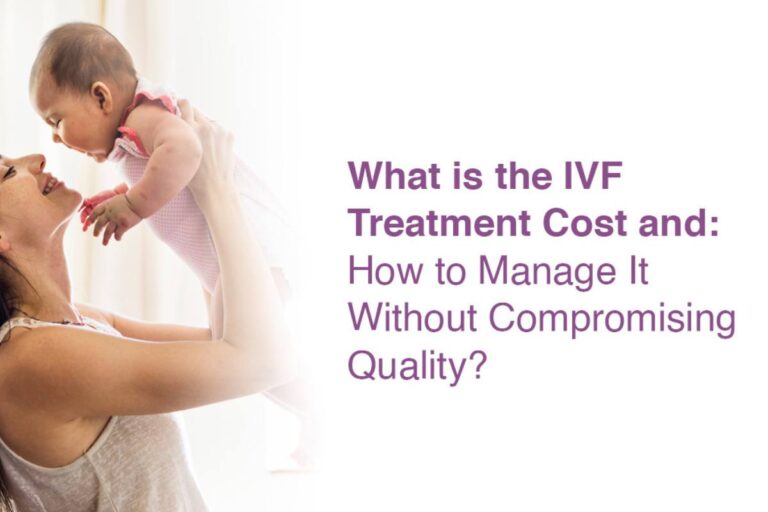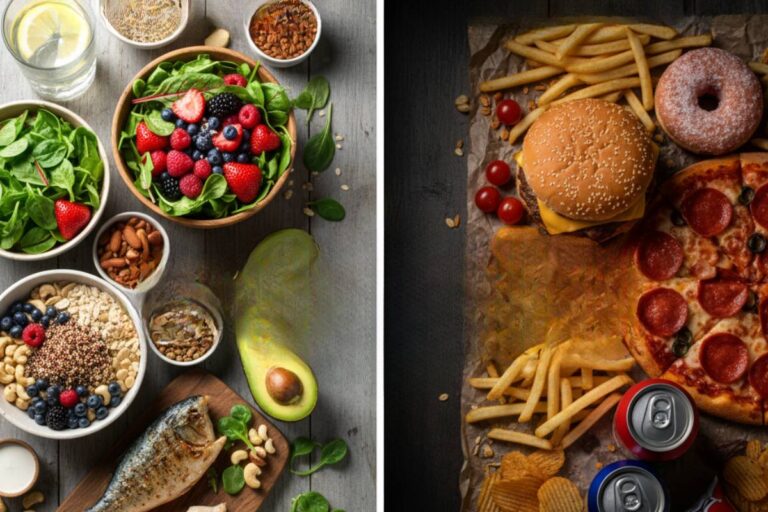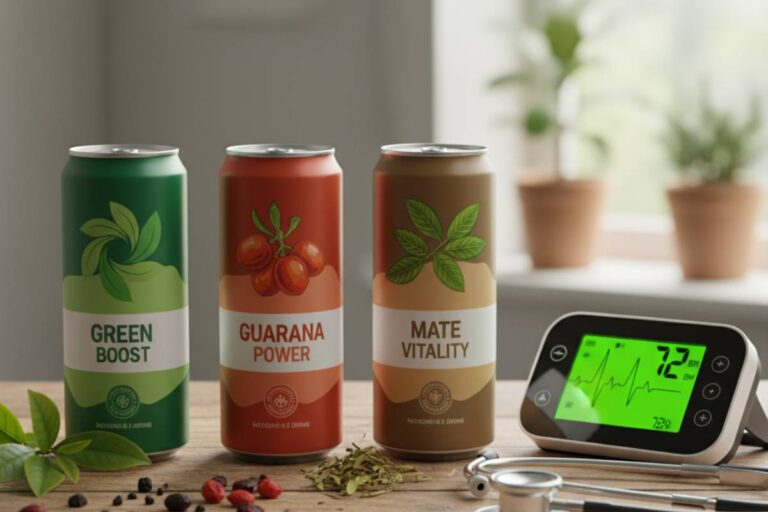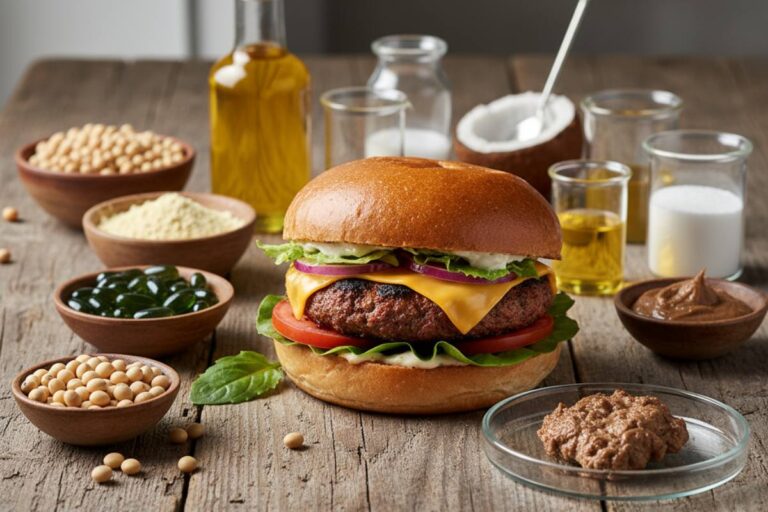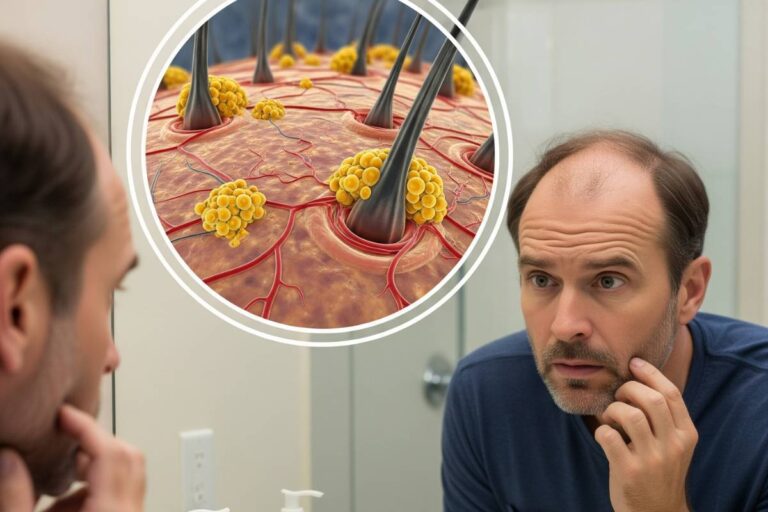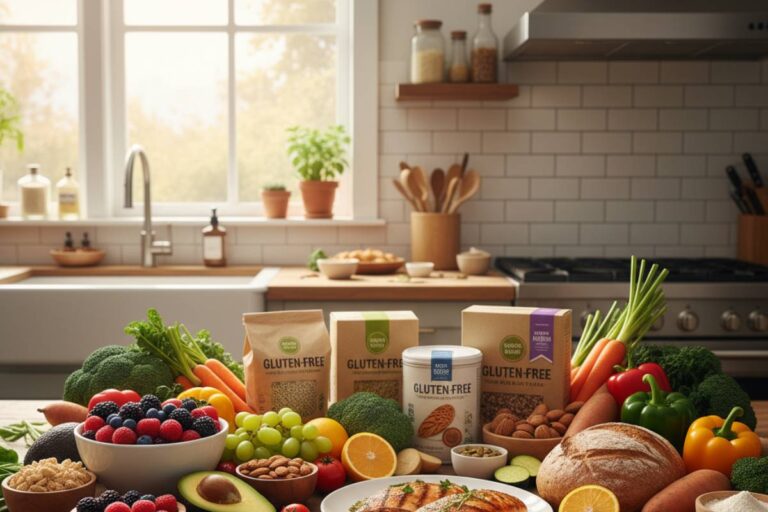Have you ever looked at old pictures and daydreamed about how much thicker and fuller your hair used to be? Or maybe your brush or drain has a few more hairs than usual? Thinning and hair loss are problems that affect millions of people all over the world. There are many things that affect your health, such as genetics, age, hormones, and stress. But one thing that you can control is your diet. The health of your hair follicles and their ability to make healthy, shiny hair are both directly affected by what you eat. This guidebook goes straight to the best foods for hair growth, looking at the vitamins and minerals your hair needs and how to include them in tasty meals every day. The first step toward possibly giving your hair new life from the inside out is to understand how your diet affects your hair.
Your hair isn’t just a dead protein strand; it grows from follicles that are alive and need a steady supply of nutrients to work well. If you don’t give them these building blocks, the growth cycle can be thrown off, which can make your hair weaker, thinner, or even cause more shedding. Let’s go on this journey together to find out how eating better can make your hair healthier.
Why Your Diet is a Game-Changer for Hair Health.
Before we dive into individual foods, let’s touch on why nutrition is so important to your hair. Hair has an ongoing cycle:
- Anagen (Growth Stage): The growth stage where rapidly dividing hair cells make the hair shaft longer. This stage can range from 2 to 7 years. Most of your head hairs (about 85-90%) are usually in this stage.
- Catagen (Intermediate Stage): Brief intermediate phase (lasting weeks) during which hair growth halts and the follicle shrinks a little.
- Telogen (Resting Phase): The follicle rests for 2-4 months, and the previous hair stays in.
- Exogen (Shedding Phase): The previous hair falls out, and the follicle prepares to grow a new one, re-initiating the anagen phase.
Lack of nutrients can shorten the anagen phase, push more hairs into telogen too soon (which causes obvious shedding, a condition called telogen effluvium), or make hair shafts grow weaker.
Think of your hair follicles as tiny factories. They need a steady supply of nutrients and fuel to make good hair. If the supplies run low, production stops, quality goes down, and the factory might even have to close some of its production lines for a while. These factories are always stocked and ready to work at their best when you eat well.
The Powerhouse Nutrients Your Hair Needs
To find the best hair regrowth food, we first have to understand which nutrients are the V.I.P.s for your follicles. Here’s a rundown of the players:
1. Protein (Especially Keratin): Hair itself is composed mostly of a protein called keratin. A lack of protein can cause your body to skimp on protein, slowing hair growth and resulting in weaker hair.
- Role: Supplies the basic building components of hair strength and structure.
- Deficiency Link: May cause brittle hair and hair loss.
2. Iron: This element is essential for the manufacture of haemoglobin, the red blood cell protein that delivers oxygen throughout your body, including to your hair follicles. Inadequate oxygen delivery can compromise follicle function. Iron deficiency (anaemia) is a recognized cause of hair loss, especially in women.
- Role: Enables oxygen delivery to hair follicles.
- Deficiency Link: Closely linked with telogen effluvium (shedding).
3. Zinc: It is essential in hair tissue repair and growth. It also serves to maintain the oil glands that are near the follicles in proper functioning condition.
- Role: Necessary for the synthesis of DNA and protein in follicles, for enzyme activity, and for the health of the oil glands.
- Deficiency Link: May result in hair loss, delayed growth, and a change in hair texture.
4. Vitamin C: Vitamin C is an antioxidant that will help guard the hair follicles against free-radical damage. Importantly, it’s also necessary for synthesizing collagen (a protein crucial to skin and follicle formation) and supporting iron absorption from plant sources.
- Role: Protects against oxidation, synthesizes collagen, and enhances iron uptake.
- Deficiency Link: Can result in brittle hair and contribute to hair loss indirectly through impaired iron absorption.
5. B Vitamins (Biotin, Niacin, Folate, B12): These vitamins serve different purposes in the health of the hair.
- Biotin (B7): Frequently sold separately for hair growth, biotin is part of keratin production. Although deficiency is unusual, maintaining a sufficient intake is thought to be helpful.
- Niacin (B3): Improves circulation, which can help increase blood flow to the scalp.
- Folate (B9) & B12: Both are associated with red blood cell production (bringing back to oxygen supply) and cell division, essential in growing tissues at high rates, such as the hair follicle.
- Function: Energy metabolism, cell division, keratinization, and circulation aid.
- Deficiency Connection: Both deficiencies of B12 and Folate can lead to hair loss; Biotin deficiency is very rare but will result in hair thinning.
6. Vitamin D: Although its precise function is the subject of ongoing investigation, insufficient Vitamin D has been associated with alopecia areata (an autoimmune disease leading to hair loss) and perhaps other conditions of hair loss. Vitamin D receptors in hair follicles imply a function in the cycle of hair growth.
- Role: Perhaps stimulates old and new hair follicles; implicated in immune function.
- Deficiency Link: Linked to all forms of alopecia.
7. Vitamin E: Like Vitamin C, Vitamin E is a powerful antioxidant that assists in fighting oxidative stress, which can degrade hair follicle cells.
- Role: Antioxidant protection, possibly enhances scalp circulation.
- Deficiency Link: Less directly associated with hair loss than other nutrients, but essential for overall cell health.
Omega-3 Fatty Acids: These are essential fats that occur in the cell membranes of your scalp skin and in the natural oils that moisturize your scalp and hair. They also possess anti-inflammatory effects.
- Role: Scalp health, hydration, and inflammation reduction that may impact follicles.
- Deficiency Link: May cause dry scalp and dull hair.
Selenium: Trace mineral antioxidant with a function of guarding against damage and the processes of hair growth.
- Role: Antioxidant defence, processes of hair growth.
- Deficiency/Excess Link: Deficiency as well as excessive selenium can result in loss of hair, so a balance is maintained.
Having now seen the important ingredients, next comes the food through which these reach us in efficient quantities.
Exploring the Best Food for Hair Regrowth: Your Grocery List for Luscious Locks
Eating a varied, balanced diet is the best strategy. Here are some of the top food categories and specific items renowned for their hair-boosting nutrient profiles:
1. Eggs: The Complete Package
Often hailed as nature’s multivitamin, eggs are nutritional powerhouses for hair.
- Key Nutrients: Rich in protein (the building blocks!) and biotin, both crucial for hair growth. They’re also packed with zinc, selenium, and other nutrients beneficial for hair health.
- Why They Work: The fact that they’re packed with high-quality protein and easily accessible biotin makes eggs a superstar. Biotin deficiency is associated with hair loss, and protein is structurally crucial.
- How to Enjoy: Scrambled, poached, boiled, or in omelettes – add them to your breakfast or lunch regularly.
2. Leafy Greens:
The Iron Champions (with a Helper!)
Spinach, kale, Swiss chard, and other dark leafy greens are great for hair health.
- Key Nutrients: Packed with iron, vitamin C, folate, and vitamin A.
- Why They Work: Iron is essential for oxygen delivery to follicles. The genius aspect? Leafy greens are also a source of Vitamin C, which greatly facilitates the uptake of plant-based (non-heme) iron. Vitamin A assists with sebum secretion, lubricating the scalp. Folate supports cell growth.
- How to Enjoy: Blend spinach into smoothies or omelets, incorporate kale in salads or baked in chips, sauté Swiss chard as a side.
3. Fatty Fish: Omega-3 Wonders
- Salmon, mackerel, herring, and sardines are bursting with healthy fats and other benefits.
- Key Nutrients: Good source of Omega-3 fatty acids, excellent protein, selenium, and vitamin D. B vitamins are included in some types.
- Why They Work: Omega-3s suppress inflammation and help scalp health and hair hydration. Protein offers building blocks, while Vitamin D and selenium provide follicle support and protection. Research has associated omega-3 consumption with decreased hair loss and increased density.
- How to Enjoy: Target 2 servings weekly. Grill, bake, or pan-fry salmon; toss sardines on salads or toast.
4. Berries & Citrus Fruits: Antioxidant Powerhouses
Blueberries, strawberries, raspberries, oranges, grapefruits, and lemons are full of goodness.
- Key Nutrients: Exceptionally rich in Vitamin C. They also have several other antioxidants.
- Why They Work: Vitamin C is important to shield follicles from destructive free radicals and plays a key role in making collagen, which tightens hair shafts and aids follicle structure. It also enhances iron absorption.
- How to Enjoy: Add berries to yoghurt, oatmeal, or smoothies. Snack on citrus fruits or use their juice in dressings and marinades.
5. Nuts and Seeds: Tiny Packages of Potency
Almonds, walnuts, flaxseeds, chia seeds, pumpkin seeds, and sunflower seeds are nutrient-dense snacks.
- Key Nutrients: Offer a wide array, including zinc, selenium, vitamin E, omega-3 fatty acids (especially walnuts, flax, chia), and B vitamins (including biotin in some).
- Why They Work: This mix hits several bases: Zinc for repairing hair, Vitamin E and selenium for antioxidant protection, Omega-3s for scalp health, and B vitamins for growth processes. Pumpkin seeds are especially high in zinc.
- How to Enjoy: Munch on a small handful, sprinkle over salads or yoghurt, blend into smoothies. Take note they are calorie-dense, so moderation is essential.
6. Lean Meats and Poultry: Protein and Iron Sources
Chicken, turkey, and lean beef are good sources of necessary nutrients.
- Key Nutrients: Great sources of easily usable (heme) iron and protein. They also supply zinc and B vitamins.
- Why They Work: Supplies the basic building blocks of protein and the most easily usable form of iron to help fight deficiency-related hair loss.
- How to Enjoy: Choose grilled, baked, or roasted methods over fried. Use moderate amounts in your meals.
7. Legumes: Plant-Based Power
Beans (such as kidney beans, black beans), lentils, chickpeas, and soybeans are great plant-based choices.
- Key Nutrients: Excellent sources of protein, iron, zinc, folate, and sometimes biotin.
- Why They Work: Provide a plant-based substitute for essential minerals such as iron and zinc, in addition to protein and B vitamins essential for the hair cycle of growth.
- How to Enjoy: Combine with soups, stews, salads, or prepare dips such as hummus (chickpeas). Lentil curries or bean burgers are also great options.
8. Sweet Potatoes & Carrots: Beta-Carotene Boost
These highly colored orange vegetables provide a special advantage.
- Key Nutrients: High in beta-carotene, which is converted into Vitamin A in the body.
- Why They Work: Vitamin A is required for cell growth, including hair cells. Vitamin A also assists the scalp in producing sebum, the natural oil that hydrates the scalp and keeps the hair healthy. Note: Too much Vitamin A results in hair loss, so stick to food sources rather than high-dose supplements unless instructed by a physician.
- How to Enjoy: Roasted carrots, baked sweet potato fries, mashed sweet potatoes, or tossing grated carrots into salads.
9. Oysters: The Ultimate Zinc Source
Though perhaps not an everyday food, oysters stand alone.
- Key Nutrients: One of the richest known dietary sources of zinc
- Why They Work: Their extremely high content of zinc works directly to facilitate hair growth and repair functions. Zinc deficiency has a strong connection to hair loss.
- How to Enjoy: Enjoy occasionally raw (if you believe the source!) or cooked. If oysters are not your favorite, concentrate on other sources of zinc, such as beef, pumpkin seeds, and lentils.
10. Avocados: Healthy Fats and Vitamin E
Rich, creamy avocado is a favorite for a reason
- Key Nutrients: A Great source of healthy monounsaturated fats, Vitamin E, some B vitamins, and Vitamin C.
- Why They Work: Vitamin E is an antioxidant that guards the scalp. Healthy fats are beneficial to overall skin and scalp health.
- How to Enjoy: Slice and put on toast, salads, or sandwiches; blend into smoothies for a creamy texture.
Subheading: Your Strategy for Incorporating the Best Food for Hair Regrowth
Discovering the best food for hair regrowth is just half the battle; it’s all about consistency. Here’s how to make it happen:
- Emphasize Variety: Don’t consume eggs alone every day. Strive to have a good variety of the foods mentioned above all week long to guarantee you are consuming a full spectrum of nutrients.
- Prep Your Meals: A little pre-planning can assist in guaranteeing you’re incorporating hair-healthy foods into your regimen daily. Consider tossing spinach into your omelette, sticking nuts in your lunch for a snack, or having salmon for supper.
- Combine Foods Strategically: Remember, Vitamin C boosts iron absorption? Pair iron-rich foods (like lentils or spinach) with Vitamin C sources (like bell peppers, tomatoes, or a squeeze of lemon juice).
- Stay Hydrated: Water is essential for transporting nutrients to your follicles and keeping your scalp hydrated. Aim for adequate water intake daily.
- Be Patient: Hair growth is a slow process. You won’t see results overnight. It can take several months of consistent nutritional improvement to notice a difference in hair thickness or shedding rates.
Beyond the Plate: Other Factors Affecting Hair Regrowth
Although diet is a cornerstone, optimal hair health is often a holistic process. Consider the following factors:
- Stress Management: Ongoing stress can force more hair follicles into the resting (telogen) phase, causing more shedding. Add stress-reducing activities such as yoga, meditation, deep breathing, or spending time in nature.
- Gentle Hair Care: Steer clear of harsh chemical treatments, too much heat styling, and tight hairstyles that tug on the follicles (traction alopecia). Treat your hair with care, particularly when wet.
- Scalp Health: A healthy scalp is the basis for healthy hair. Clean it regularly, but not with harsh shampoos that remove natural oils. Some gentle scalp massage from time to time might enhance circulation.
- Adequate Sleep: Sleeping is when your body restores and rebuilds itself. Get 7-9 hours of quality sleep nightly. Growth hormone, which enables cell reproduction, is secreted while sleeping.
- Underlying Medical Conditions: Sometimes, hair loss is a symptom of an underlying issue like thyroid disorders, hormonal imbalances (e.g., PCOS), autoimmune diseases (alopecia areata), or certain medications. If your hair loss is sudden, patchy, excessive, or accompanied by other symptoms, it’s crucial to consult a doctor or dermatologist.
When Diet Isn’t Enough: Seeking Professional Advice
Emphasis on the optimal food for hair regrowth is an excellent, forward-thinking measure you can take. Still, be realistic. Nutrition can play a big role in maintaining healthy hair growth and even reversing some causes of hair loss, particularly those due to nutritional deficiencies.
But, if hair loss is hitting you hard:
- Don’t Self-Diagnose: There are several possible causes of hair loss, and only a medical doctor can determine the cause in your particular situation.
- See a Doctor or Dermatologist: They can run tests (such as blood tests to identify deficiencies or hormonal imbalances) and inspect your scalp to ascertain the cause.
- Describe Treatment Options: Treatments may vary depending on diagnosis and can be from correcting nutritional deficiencies through selective supplementation (with medical supervision), drugs (such as minoxidil or finasteride), low-level laser therapy, or surgery such as platelet-rich plasma (PRP) treatment.
Dietary modifications would be considered secondary to other possibly required medical therapies, not instead of them, particularly for problems such as male/female pattern baldness or alopecia areata.
Conclusion: Feed Your Follicles for Healthier Hair
Your plate can really help you get on the road to healthier, maybe even fuller hair. You can help your hair follicles grow by eating the right foods and making sure to include the best foods for hair regrowth in your diet. These foods give your hair follicles the building blocks and protective nutrients they need to thrive.
Don’t forget the important nutrients: protein, iron, zinc, vitamin C, B vitamins, vitamin D, vitamin E, and omega-3 fatty acids. Eat a lot of bright, colorful fruits and vegetables like berries and leafy greens, lean protein sources like eggs and fish, healthy fats like nuts and avocados, and complex carbohydrates like legumes and sweet potatoes.
Stick with it, be patient, and think of these changes to your diet as part of a bigger commitment to your health and happiness. Food isn’t a magic wand, but eating well is a natural and powerful way to keep your hair growing and make it as strong and healthy as possible. To eat better and have better hair!









